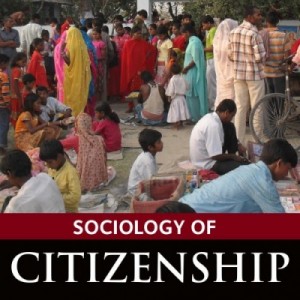In March, Uday Chandra of the Max Planck Institute reviewed ‘Patronage in Politics in South Asia’ for our Migration and Citizenship. In this post, I want to respond with my own analysis of the book’s arguments.
It is true, as Anastasia Piliavsky points out in her superb introduction, that patronage has long been treated as a distasteful element of developing societies. Personalised exchange between social unequals has been viewed as either a perversion of liberalism’s central tenets of equality and freedom of choice or as a screen concealing exploitation. Quid pro quo electoral exchanges, in which votes are bartered for particular services rendered, are considered ‘bad’ democratic practice. And of course, the use of public power for private gain is unequivocally condemned as corruption.
It is in response to these normatively loaded charges that this rich, well-presented volume seeks to establish an alternative understanding of patronage. Many contributors – most prominently Pamela Price, Beatrice Jauregui, Lucia Michelutti and Mattison Mines – agree with Piliavsky’s casting of patronage as a ‘living moral idiom’ (4). Through the attentive lens of the anthropologist, they argue that human deliberativeness and purposiveness go beyond maximizing rationality. People assess their patrons in moral terms, holding them to standards that valourize selflessness and an evident commitment to providing for and protecting their people. For them, corruption is what obtains when leaders fall short of these standards and ‘eat’ instead of ‘feed’, a recurring observation that many authors make throughout the book.
Reading the contributions together generates the strong impression that patronage flourishes because it successfully incorporates the multiple motivations of human behavior. For example, Ward Berenschot and Lisa Bjorkman show the electoral choices of Gujrati Dalits and Mumbai’s slum-dwellers to be geared towards securing identifiable material benefits, i.e. choosing leaders who ‘get things done’ to meet their everyday needs. Diane Mines finds that the links communities and individuals have to patrons give rise to a sense of self and thus contribute to the need for identity and belonging. Security of life, property, and preferential access to state resources is provided by the patrons and mastans that Lucia Michelutti and Arild Ruud write about. Filippo Osella notes that in contrast to the West, South Asians aspire to ‘highly socially connected selves’ that are imbricated in each other’s social lives; patronage and brokerage are therefore corollaries of valuing ‘non-autonomy’. And throughout the book we meet people for whom justice and fairness are served (or not) through trickle-down particularistic redistribution and reciprocity.
Seen in this way, patronage is rehabilitated as a social logic that makes sense at multiple levels. It is a ‘central structuring principle’ of not just electoral politics, but of the whole of social life. However, the emic approach taken by many contributors prompts a discomfiting question: what are we to make of the knowledge that patronage often feeds on – and is fed by – particularistic ideas of ‘the good’? Fundamentally, how should we evaluate these ideas of the good while steering clear of the equally dangerous poles of relativism and ethnocentric generalization? As an example of analysis that begs the question, in her study of the UP police Jauregui argues that practices ‘rife with inequality, discrimination and potential injustice… also contain and often follow conceptions of justice, which we cannot ignore’ (256). What does it mean ‘to not ignore’ these conceptions? They are true for the group and/or locality under study, but surely we cannot endorse them as just. Yet, we are not given any substantive clues on how to assess the moral universes so carefully revealed – they are merely reported as the ‘why’ for what people do.
I believe the question of how to think about the ‘why’ is both very important and very difficult. It is also not the same as squaring the reality of moral exchange with the observation – made with varying emphasis by all contributors – that patronage has the effect of perpetuating deep inequalities. And while there may be no answers in this volume to the former question, David Gilmartin’s excellent contribution addresses the latter. There is a paradox at the heart of both the democratic and the patronal ideal he argues. In order to be efficacious, politicians and patrons must command power and resources. Yet, to be perceived as morally good, they must be seen as maintaining independence from the sources of their power. The chapter also discusses the intellectual history of British electoral law and its application in south Punjab’s colonial courts. Gilmartin tackles the problems inherent in liberal distinctions between coercion and consent, legitimate and illegitimate influence and shows that the law is beset with the self-same contradictions as patronage. Hence – as Piliavsky also reasons in her chapter – democracy and patronage are both doomed to disappoint.
The emancipatory potential of the law meets with significantly greater optimism in Nick Martin’s analysis of rural patronage relations in Pakistan. He argues that the trickle-down of benefits through vertical personalized relations ‘prevents political unity and class mobilisations amongst subordinate classes’. It is indicative of how irrelevant class action has become to social science that we must get to page 328 of this volume to find mention of this! Martin’s contention is that it is not the law that disappoints; rather, it is the subversion of the law by elites that deprives ordinary people of their constitutionally enshrined rights to education, health, tenure, etc.
The book is driven by a strong desire to negate the vilification of patronage in the literature while also showing it to be inevitably flawed. In this it succeeds brilliantly, presenting us with compelling reasons to remain ambivalent about both patronage and democracy. Hierarchy is endemic to both, and the editor does well to include differing perspectives on the relative merits of each. But it is inevitable I think, that the rich reports of local values and practices presented in the book will traverse the murky waters from what ‘is’ to what ‘ought to be’ in reader’s minds. The editor – if not the contributors – would have done well to acknowledge this. Uday Chandra ends his review of this volume in these pages by reminding us that ‘utopia is, literally no place at all’. However, acknowledging this to be true does not mean that we can rescind the hard work of evaluation. It is not enough to describe what is, we must also indicate our ‘oughts’!
This post is part of our Sociology of Citizenship series, hosted in partnership with Oxford’s Department of International Development.






